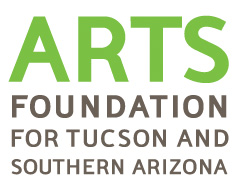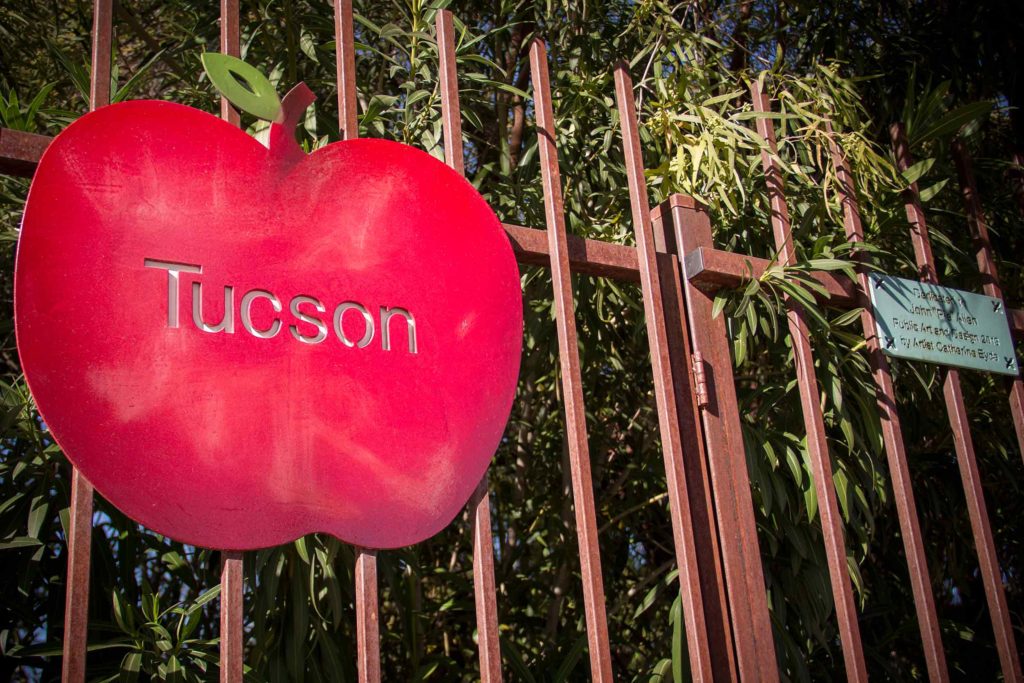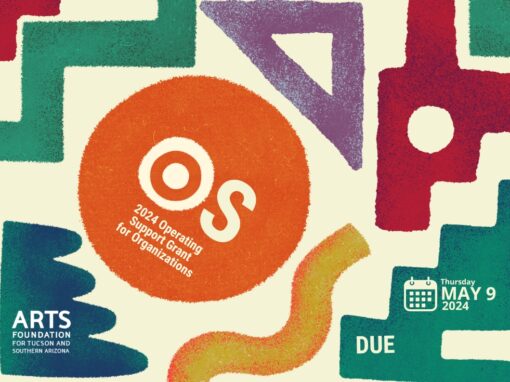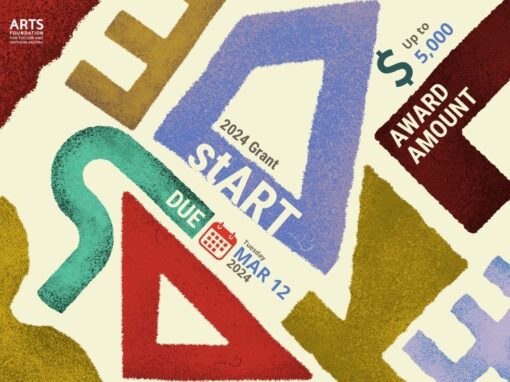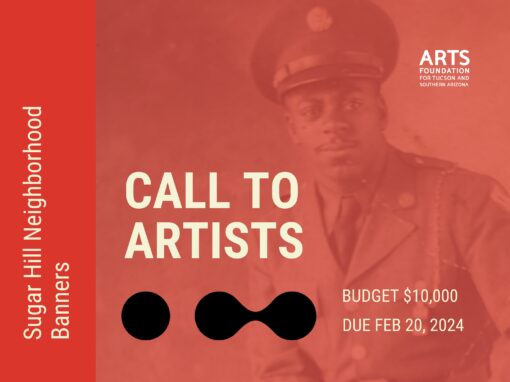April is National Poetry Month and we are celebrating by highlighting the local poets in our Tucson and Southern Arizona! But, first, a note and poetic piece and statement from Tucson’s new Poet Laureate, TC Tolbert. Congratulations, TC!
Tolbert will serve a two-year term beginning March 1, 2017. The Poet Laureate may not serve more than three terms. The purpose of Tolbert’s new position is to promote poetry and an appreciation of poetry among the general public and to inspire an emerging generation of literary artists and readers of literature. Tolbert will serve as an ambassador to the literary arts and reflect the spirit of the community by promoting literary education in our schools and communities and bringing poetry to the people in Tucson who have limited access or exposure to the literary arts.
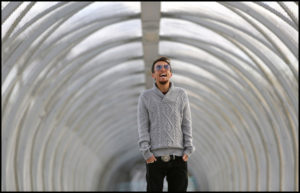
Photography by Mamta Popat
Tucson is a place unlike any other. I moved here from southeast Tennessee 14 years ago and have been overjoyed to find a place where I can fully live all of my identities – transgender, queer, poet, and teacher. Being appointed Tucson Poet Laureate means I have the opportunity to give and reflect back some of the inspiration and support and I’ve received in this magical desert town.
With its deep commitment to the arts and social justice, Tucson is already filled with many unacknowledged poet laureates. Teré Fowler Chapman and Words on the Avenue, Logan Phillips and Sarah Gonzales and Tucson Youth Poetry Slam, Kristen Nelson and Casa Libre, Lisa Bowden and Kore Press, Em Bowen and the Tucson Poetry Festival, Samuel Ace and POG, and of course, Tyler Meier and Hannah Ensor at the Poetry Center – these are all folks who work tirelessly to bring poetry to people, to create space for self-reflection and expression, and to celebrate the many voices of Tucson. I’m continually inspired by them and their work and lucky to get to work alongside them.
I’m also honored to follow in Rebecca Sieferle’s footsteps and continue to be a public servant in schools and in the community. My primary focus is, as always, uplifting the voices of those who are too often silenced (with particular emphasis on LGBTQ youth and elders, femme-identified people, youth of color, migrants, and refugees) and creating occasion for collaboration and community building across identities. I don’t turn to poetry for its ability to take me out of (I don’t think of poetry as “an escape”), I turn to poetry for its ability to bring me back into the company of this world.
Last spring I was in a cab accident that displaced 4 ribs. The healing process, although still ongoing, was at its most intense during the 6 months following the accident. During that time, I couldn’t sit for any extended period of time (anything over 15-20 minutes was excruciating) and I couldn’t read, type, or write. In other words, I was completely cut off from the tools I use not only to make a living but to understand the world and my place in it. There’s no beautifying it – in addition to the physical pain, that was an emotionally, psychologically, and spiritually demanding time. Anyway, as I lay in bed (and on the couch, and mostly on the ground), I would watch and envy the birds. I learned their names and behaviors and began to notice (wake up to, fall in love with) the many slight shifts which precede and then create large movements. I became a student of accretion and accumulation.
All of this waiting and watching for my body to change brought to mind my experience of going on testosterone (and thus entering into a physical gender transition back in 2006). Although there are, of course, many differences between a gender transition and recovery from an accident or illness, some things they seem to have in common are the need for interminable patience, surrender to asking for help, accurately seeing the flaw in capitalism that says we are only worth what we produce (and rejecting that logic), in addition to holding the heart open for whatever might come and then change.
Lying there, I kept wanting to talk to the girl I had been – Melissa – and get her take on things. I wanted to know what she made of the life I was living, had I made her proud. This is one of several epistolary poems to Melissa – a way of bringing her into my world and showing her around.
(Photo by Mamta Popat)
CHUK’SHON
Logan Phillips
A found poem combining passages from Lydia Otero’s “La Calle” and Mark Dimmit’s description of the creosote bush in “A Natural History of the Sonoran Desert.”
oldest continuously inhabited place in the United States
the foliage emits a strong aroma, especially after it rains
no other US city remained under Mexican control longer
can live for at least two years with no rain
up to 1920, when Anglos became the majority
small yellow flowers appear throughout the year
oldest continuously inhabited place in the United States
driven by an unrelenting desire for order
each stem lives only a couple of centuries
places are made through power relations
extra genetic material seems to confer more adaptability
many opposed their removal in ways that remain undocumented
oldest continuously inhabited place
identified as “the smell of rain”
driven by the desire to lure tourists
many stems rise at an angle from the ground
the “silences” of history
inhabited place
•
EATING AROUND THE DIRT
Julia Kinu
for an hour we questioned
whether that giant orange bulb of light
was the moon and now it emanates off
the screen of my phone.
I found love over two years ago
in the bed of a motel
and I flayed myself against
the flesh of your belly.
my life became a laundry day
when the dryer is broken
so i made a clothesline across the rooms
of my house like conspiracy theories.
for christmas I’ll buy you a bag of
chips and I love you too.
“The first time I went to a Words on the Avenue* event I was barely involved in any writing scenes here in Tucson. It was my first open mic reading any of my poetry, and I remember sitting with a few friends in a crowded patio, sweaty, and extremely nervous. Once it started, I immediately fell in love and all my fears went away. I went to every single open mic for 5 months, trying to find a way to get myself involved in both Words on the Avenue and the Tucson poetry scene itself. I have so much gratitude for the confidence I’ve gained from these experiences. Everything I have done is a progression from that first reading, and I owe it all to the inclusive, positive space that Words on the Avenue has given to me and the community.”
– Julia Kinu
*![]() Words on the Avenue is a 100% community funded open mic dedicated to all forms of writing. This platform gives the community a consistent supportive space to share their original work while also introducing audiences to an array of writing forms. You can find this open reading at Cafe Passé, every last Sunday of the month. For more information visit wordsontheavenue.com.
Words on the Avenue is a 100% community funded open mic dedicated to all forms of writing. This platform gives the community a consistent supportive space to share their original work while also introducing audiences to an array of writing forms. You can find this open reading at Cafe Passé, every last Sunday of the month. For more information visit wordsontheavenue.com.
TUCSON MEDITATION
Wren Awry and Students, Davis Bilingual Elementary
Nuestra ciudad es un churro.
Nuestra ciudad es el mariachi.
Nuestra ciudad es Día de los Muertos.
Our city is metal from the rivers.
Our city is the eyes of the bobcat.
Our city is wood from the mesquite tree.
We are diamonds.
Somos agua.
We are tamales.
Somos familia.
From UA Poetry Center blog 1508 A Blog Where Poetry Lives A Letter to Juan Felipe Herrera by Wren Awry. Wren Awry is a Tucson-based essayist, poet and teacher of creative writing at Davis Bilingual Elementary through the UA Poetry Center’s Writing the Community Program.
Below are excerpts from the UA Poetry Center blog 1508 A Blog Where Poetry Lives Climate Change + Poetry series answering the questions, “What role does poetry have in envisioning, articulating, and/or challenging, our ecological present? And what role does poetry have in anticipating our future, in imagining otherwise?”
“There’s no way for me to think about how human intervention in the earth’s system is changing everything we know, everything we are, and everything our fellow inhabitants count on—everything about everything. How can my poems not be obsessed with these questions? How can I not—as my students voiced this week—be consumed by concerns about how my poems can participate in a conversation that might affect some kind of positive change?”
-Camille Dungy
“We have arrived at a time when there is no border between lyric and political poetry. The lyric poem speaks the soul’s song on the stage of the present moment, and if the present moment is clouded by a threatening sky or toxic contaminants or disappearing species or toxic political discourse, the poem is listening and wants to speak. And speak it will, sing it will, celebrate and grieve, bear witness and investigate, mock and ameliorate. It’s our job as poets to cleanse the language of toxic residue, to cleanse the spirit of stultifying fear and despair. I’m grateful to be living during such a dynamic age for American poetry, and I have never believed more firmly in the need for our work.”
-Alison Hawthorne Deming
